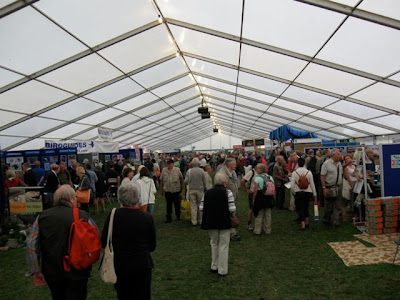Last March I went on a birding trip to The Philippines, about which I wrote a few posts here on Bill of the Birds. I saw many amazing birds there and made a whole passel of new friends. One of my new friends is Lisa Marie Paguntalan, who is leading a team that is working to save the critically endangered Cebu flowerpecker. I interviewed Lisa for episode 21 of "This Birding Life" my podcast, and people all over the world got to hear her incredible story.
I also got to know some fabulous Filipino birders, like Nicky Icarangal, Ivan Sarenas, Mike Lu, and Adrian Constantino. A nice side benefit was meeting many British bird tour leaders and birders also along on the trip. One of these Brits was Tim Appleton, co-creator of the Bird Fair.
When I realized that most of these fine folks would be at the British Birdwatching Fair, things had reached the tipping point. I HAD to go across the pond for this mammoth birding event held each August.
Because the theme of this year's Bird Fair was Saving Critically Endangered Species, and because the Philippines is trying to encourage ecotourism to their country as a way to save habitat and grow their economy, it was only natural that this Asian nation of islands would have a strong presence at the Bird Fair. Not only did the Philippines have a large, striking booth, and sponsored signage all over the place, they also brought a live band from home to entertain fair attendees. Throughout the weekend, the band played their traditional instruments—many of which resembled marimbas—on a variety of traditional Filipino songs and modern pop tunes. During one three song segment, they played, in a row, "Yellow Submarine" by the Beatles, "In the Mood" by the Glenn Miller Orchestra, and "The Macarena".
Not only did the band play well, they had unusual instruments (see the bamboo pan flutes above) AND intricate choreography. Needless to say it was all really cool.
 Most of the folks who were working the Philippines tourism booth at the Bird Fair were kind enough to pose for a photo with me (above). I'm the fifth person from the right.
Most of the folks who were working the Philippines tourism booth at the Bird Fair were kind enough to pose for a photo with me (above). I'm the fifth person from the right.I'll leave you with a short video clip of the Filipino band, and one small dancing fan.























































